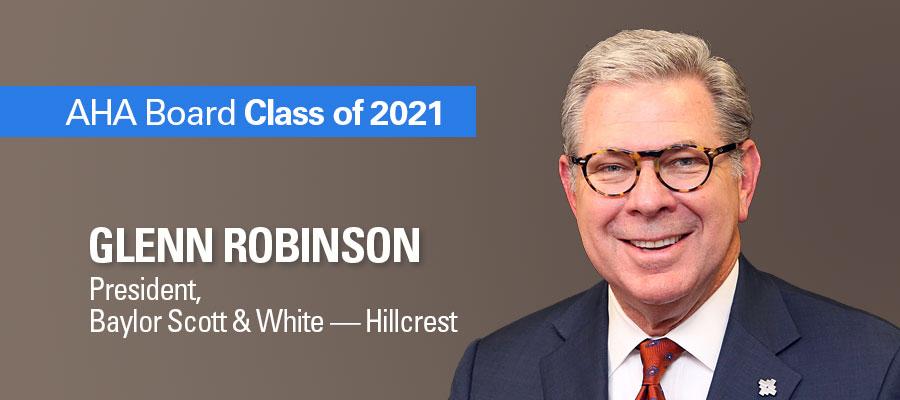Baylor Scott & White — Hillcrest’s Robinson leads patient-safety and affordability efforts with strong internal culture

As a former news anchor in Mobile, Ala., Glenn Robinson used to tell hospitals’ stories. Now he’s part of creating them.
After he reported in the 1980s on patient care efforts at USA Medical Center (now USA Health University Hospital), executives at the safety-net hospital asked Robinson to join their board. The experience later led him to take a marketing position at the hospital. Some three decades (and various roles) later, Robinson is now president of Baylor Scott & White Medical Center — Hillcrest in Waco, Texas, where he says he is honored to lead an organization focused on doing “sacred work.”
According to Robinson, sacred work is “about finding within our own hearts, each day, ways in which to make a difference in the lives of our patients, our patients’ families and our visitors.”
For example, Robinson encourages staff to escort patients and visitors directly to their destinations when they request directions, and to extend to them other small, empathetic gestures when possible. There’s the emergency department nurse who bought a flower for an elderly patient who was separated from her family on Mother’s Day, and the pre-surgical nurse who gave her patient a written note of encouragement before the patient’s operation, for instance. This kind of compassion can go a long way, Robinson said.
A culture that empowers staff is crucial when hospitals are challenged to provide cost-effective care with limited resources, he said. For example, many of the organization’s best ideas — such as its waste-reduction initiatives, its patient- and work-safety efforts and its cost-reduction programs — have come from staff who feel empowered to speak up during the organization’s daily huddles.
Over four years, the hospital has implemented more than 1,200 ideas that were generated from the huddles.
“That's a real, key part of our culture, to which our team is deeply committed, and is really how we roll here every day,” Robinson said.
Robinson joined the AHA Board of Trustees in January. In addition to his leadership focus on culture and affordability, Robinson brings his experience in leading the hospital’s Zero Harm patient-safety initiative.
He said he is particularly pleased to contribute to the board of an organization that is at the forefront of improving maternal health and outcomes. “I am so proud of our AHA leadership that identified these initiatives,” he said.

